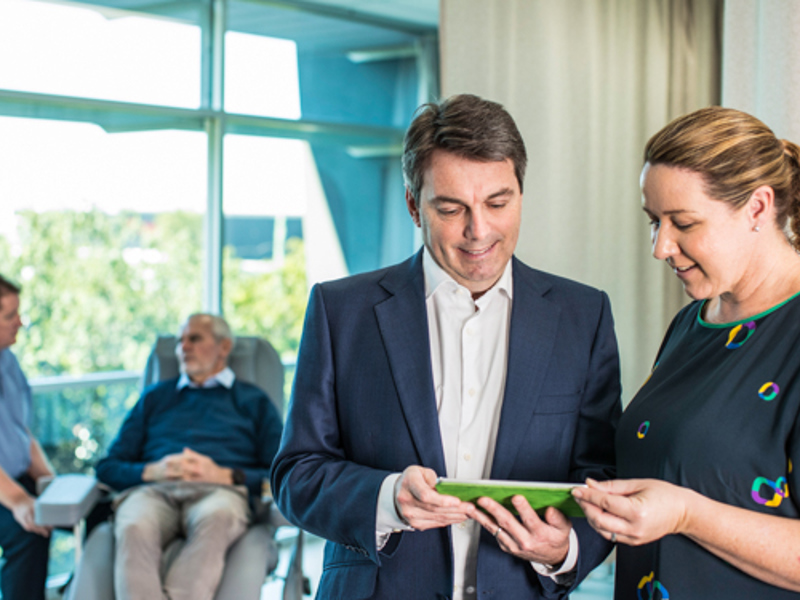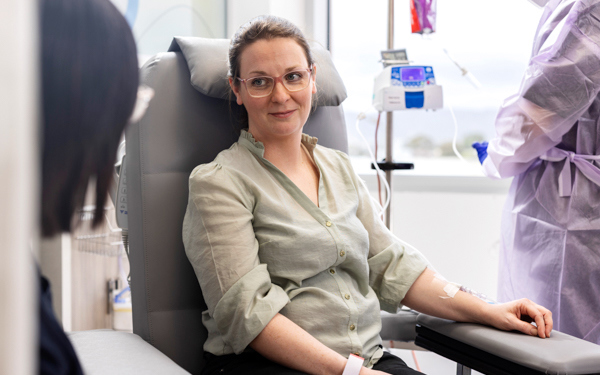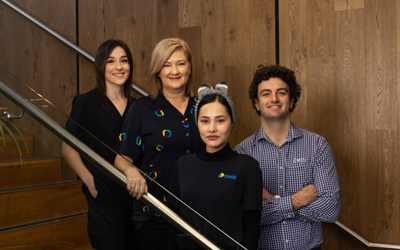What is chemotherapy?
Chemotherapy, also known as SACT (Systemic Anti-Cancer Therapy) services, is the use of anti-cancer drugs to destroy cancer cells. Many different kinds of chemotherapy medicines and treatment plans are available. The kind of medicines given, and how often they are needed, will depend on the type of cancer you have, how it responds to treatment, and how your body responds and copes with treatment. At Icon, we will talk your through your treatment plan and why it’s the best possible approach for you.
How is chemotherapy delivered?
Chemotherapy is typically given as an outpatient at a day hospital like our Icon chemotherapy treatment centres. We believe that delivering cancer care, closer to home is an important part of delivering the best possible care for our patients.
Treatment may be given orally, through a needle inserted into the vein (known as a catheter), directly into the organ or tissues affected by the cancer, or as a cream. Chemotherapy is usually given in multiple courses (cycles) for a set amount of time, or for as long as the treatment is effective. Having the treatment in cycles allows time for the healthy cells in your body to recover between treatments.
Chemotherapy may be used on its own, or in combination with other types of treatment, such as before or after surgery or radiotherapy, or together with radiotherapy.
Visit Icon’s cancer information library for more on how chemotherapy works.
Download your free cancer diagnosis checklist
Be more informed and play an active role in your own cancer care.
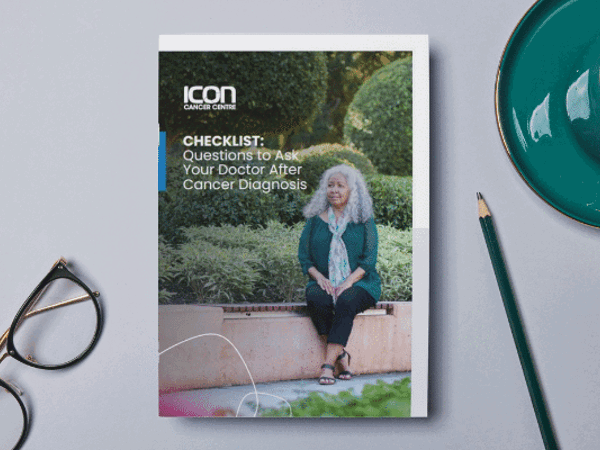
How much does chemotherapy cost?
As your treatment is unique to you and your clinical circumstances, a consultation is usually required to give a single and accurate answer to this question. However, there is some key information to remember.
If choosing to be treated by a private provider such as Icon Cancer Centre, private health insurance is required.
In Australia, out-of-pocket treatment costs, if any, will depend on your health insurance policy level of cover.
At Icon, we have no-gap agreements with most private health funds—this means no out-of-pocket costs—for admitted Medicare Benefits (MBS) services.
Reach out to our team at your nearest Icon Cancer Centre to discuss the cost of chemotherapy treatment.
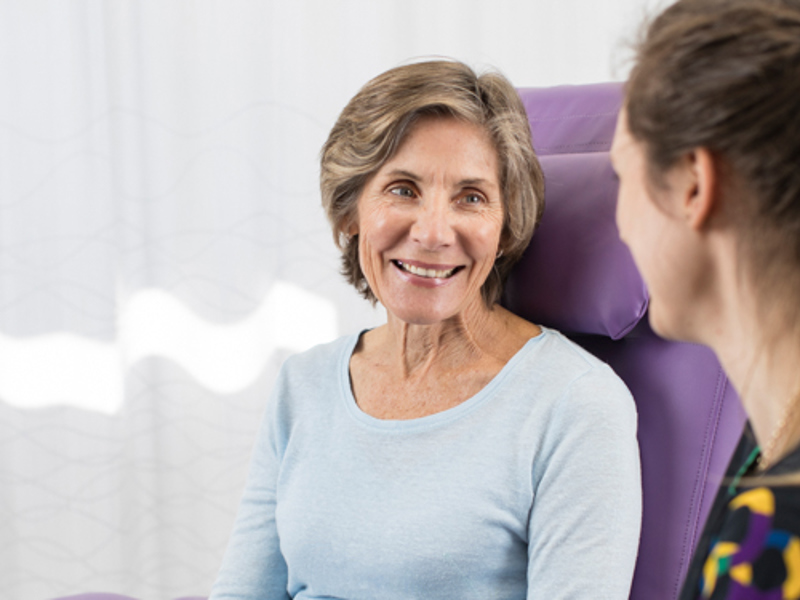
What are the side effects of chemotherapy?
While chemotherapy destroys cancer cells, it is the damage to healthy cells that causes many of the common side effects of chemotherapy.
Side effects vary depending on the type of chemotherapy drug used and the individual person.
Most are temporary and can be treated or managed.
Can hair loss be minimised?
For many cancer patients, hair loss is a deeply emotional side effect of treatment. Scalp cooling technology helps to minimise hair loss associated with chemotherapy treatment.
The scalp cooling system reduces the temperature of a patient’s scalp by a few degrees immediately before, during and after the administration of chemotherapy. The cooling effect reduces blood flow to hair follicles and can therefore minimise hair loss.
Patients share their chemo experience
In this video, Colin, Debbie, and Margaret walk you through their experience starting chemotherapy, including some of the side effects they encountered (side effects at 5min 15sec).
At Icon, we are always here to help our patients find ways to manage any side effects that experienced.
Your first day of chemotherapy

Chemotherapy explained: watch our video series
Understanding chemotherapy with Dr James Morton AM
Icon Director of Haematology Dr James Morton answers questions about chemotherapy, how it is used to treat cancers and what a patient can expect undergoing treatment.

Frequently asked questions
Compassionate, expert cancer care close to home
Our experienced doctors are here to support you with personalised care and access to the latest treatment options. At Icon, you can feel confident knowing you’re in trusted hands every step of the way.
